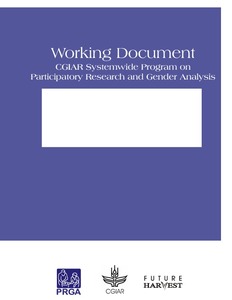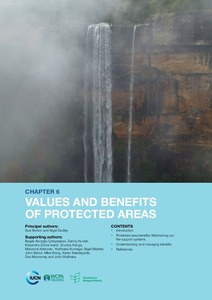Understanding groundwater storage changes and recharge in Rajasthan, India through remote sensing
Groundwater management practices need to take hydrogeology, the agro-climate and demand for groundwater into account. Since agroclimatic zones have already been demarcated by the Government of India, it would aid policy makers to understand the status of groundwater recharge and discharge in each agroclimatic zone. However, developing effective policies to manage groundwater at agroclimatic zone and state levels is constrained due to a paucity of temporal data and information.
Urban growth threatens ancestral lands
As cities expand to cover farmland with roads and buildings, the conflict between traditional land rights, and modern systems of ownership and distribution become very clear. This report comes from Blantyre in Malawi, where city authorities now charge rent on land that was once freely owned.
Using participatory research and gender analysis in natural resource management
The use of participatory tools and methods has increased dramatically in
natural resource management (NRM) over the past decade, largely because of
the recognition that sustainable NRM cannot be achieved without involving the
individuals and communities who make decisions about how resources are
used. Participation of resource users and other stakeholders is important not
only in the management of resources, but also in research oriented toward the
generation of information and innovations that shape how resources are
Water for food and energy in the GMS [Greater Mekong Subregion]: issues and challenges to 2020.
Water harvesting pans for dry areas
Pans are a simple method of storing water, particularly relevant for livestock farmers in arid areas.
Water implications of foreign direct investment in Ethiopia's agricultural sector.
Ethiopia is often highlighted as a country in which a lot of foreign land acquisition is occurring. The extent to which these investments also constitute significant acquisitions of water is the subject of this paper. It is apparent that water availability is a strong driver of the recent surge of investments in agricultural land globally, and in general the investments occur in countries with significant 'untapped' water resources. Ethiopia is no exception.
Water implications of large-scale land acquisitions in Ghana.
This paper examines the water dimensions of recent large-scale land acquisitions for biofuel production in the Ashanti, Brong-Ahafo and Northern regions of Ghana. Using secondary sources of data complemented by individual and group interviews, the paper reveals an almost universal lack of consideration of the implications of large-scale land deals for crop water requirements, the ecological functions of freshwater ecosystems and water rights of local smallholder farmers and other users.




